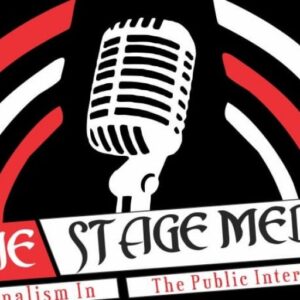Claim: In 2017, one kWh was sold for 39 cents. Today, under George Weah, one kWh is sold for 15 cents.
Full Text: On January 2, 2023, a Facebook account Prisca Paul posted the above claim on his official page.
The social media user claimed,” Simple things that matter: Back in 2017 under Joe Boakai’s government, the common people purchased electricity at 39 cents per kWh. Today, under George Weah, the same is sold for 15 cents per kWh.”
The post published on Monday, January 2, attracted 60 reactions, 98 comments, and two shares.
The Liberia Electricity Corporation (LEC) is a public utility created in 1973 by the Government of the Republic of Liberia. This entity was developed through an act of Legislature with a mandate to produce and supply economical and reliable electric power to the entire nation while at the same time maintaining the corporation’s financial viability.
Liberia’s energy problems peaked in 2003 when the country’s long civil conflict left its energy sector— including its power distribution system and the 60-megawatt Mt. Coffee hydropower plant—destroyed.
The national power utility, Liberia Electricity Corporation (LEC), ceased operations after its headquarters and distribution infrastructure was looted. To launch efforts to rebuild, the Government of Liberia began working with a group of donors in 2006 during the regime of former President Ellen Johnson Sirleaf.
They established the Emergency Power Program, and within a year, the public network had 2 MW of diesel-powered generators.
Eyeing a long-term solution, the government hired IFC in 2007 to structure a five-year, incentive-based management contract between the Government of Liberia and a private-sector partner, with support from an international group of donors led by Norway that included the United States Agency for International Development (USAID) and the World Bank’s Global Partnership on Output-Based Aid (GPOBA).
The group designed a trilateral framework agreement, the management contract aimed at improving LEC’s operational and financial performance, rebuilding the electricity system in Monrovia, and significantly expanding Liberians’ access to power.
The improved performance of LEC affected the entire sector, with donors extending grants and concessional finance to rebuild the Mt. Coffee hydro plant.
Verification: In 2017, President Sirleaf Announced a Ten Percent (10%) Reduction in Electricity Tariff; in Liberia.
The reduction in the tariff was $0.49 to $0.39 per kilowatt hour, beginning March 1, 2017.
According to the President, the dropped in tariff, however, comes as a result of regional cooperation from TRANSCO CLSG – a regional electricity transmission company that is already turning on the switch in Ganta and Harper, to be followed by Zwedru and Fish Town, at an affordable price of twenty-five cents per kilowatt per hour.
December 2021, the Liberia Electricity Regulatory Commission (LERC) Board Chairman, Dr. Lawrence Sekajipo, announced reductions in electricity tariffs beginning January 1, 2022.
He said the new tariff would enable social customers, whose monthly energy consumption is either less than or equal to 50kWh, to pay US$0.15, representing a 32% reduction from the current price of US$0.22.
Before the announcement, the Executive Director for Commercial and Regulatory at the LEC, Sam Zimbe, proposed to the Commission that the current residential prepaid tariff be reduced from US$.0.35 to US$.0.30.
Residential post-paid from US$.0.35 to US$.0.30, commercial prepaid from US$.0.35 to US$.0.27, commercial post-paid from US$.0.35 to US$.0.27 and among others.
Despite the announcement by the LERC, the LEC, on its current tariff site, says the provisional tariffs approved by the Commission on September 21, 2020, are revoked and replaced with the rates and charges.
The commissions End-User Tariffs (EUT) provided in the table below are the rates and charges payable by customers within LEC’s network in the categories specified from January 1, 2022.
TSM check established that in 2017, one kWh was sold at 39 cents. According to the Liberia Electricity Corporation, one kWh is sold for 0.24 cents plus Goods and Services Tax (GST) 10% of energy 0.024, which brings it to a total of 0.264 per kWh.
Conclusion: Following our verification, the claim is Partly True; in 2017, one kWh was sold at 0.39 cents, and the claim that presently one kWh is sold for 0.15 cents is False.
